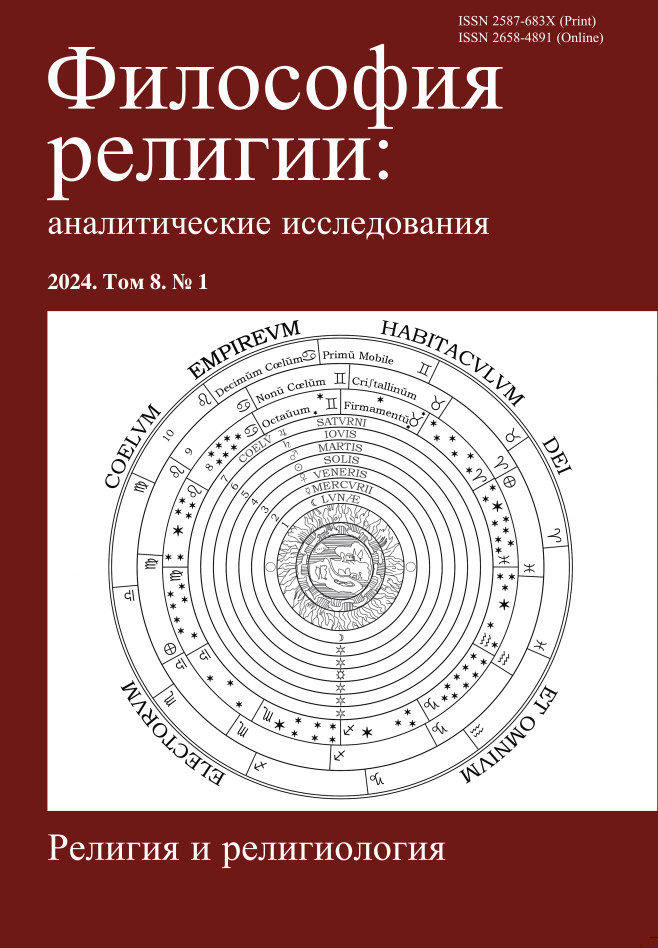“Religion” in the Bible: Concept, Terms and Contexts
DOI:
https://doi.org/10.21146/2587-683X-2024-8-1-5-19Keywords:
Bible, religion, terminology, history of conceptsAbstract
It is widely known that the term "religio" has been adapted by some languages from Latin and is used as a scientific concept denoting the subject of religious studies and philosophy of religion. A situation like this is standard for many humanitarian scientific terms: we denote by them not only what they originally referred to, but also what was not so called either in their region or in the corresponding era, for example, the religion of Ancient Israel or the religion of the Buddhists. Purists would criticise this mode of using words, while some of them, apparently, would like to research on a phenomenon in history to be conducted only in its own language, since the scientific language turns out to be under suspicion for its “western” and, probably, “colonialist” character. The other way, along with the uncritical use of terms and the rejection of scientific terminology in general, is precisely their critical use, that is, taking into account how they developed in the historical context and clarifying the original meanings. In the Vulgate, the word religio means: a) rituals, b) piety, including that of the others, c) confession, including that of the others. Thus, in Acts 26:5, the Apostle Paul calls Judaism “our religion”, talking about his Pharisaic past and characterizing Pharisaism as a secta of this religion. The word θρησκεία is found in similar positions in the Greek text of the Bible, sometimes it is replaced by εὐσέβεια and εὐλάβεια in the narrower meaning of “piety”. The concept of “religion”, of course, in biblical texts is not rigidly tied to the term, therefore it is necessary to take into account those fragments in which the word “religio” is missing. In 2 Thess 2:4, Paul speaks of the Antichrist as “exalting himself above everything that is revered”, thereby revealing the nature of religion as the ultimate veneration. Here the subject is σέβασμα or quod colitur (cf. cultus). In Acts 17:22, he calls the Athenians δεισιδαιμονεστέρους, i.e., as if excessively pious (superstitiosiores by St Hieronymus), drawing their attention to the fact that they honor the God as a precaution and without knowing Him.

 This work is licensed under a
This work is licensed under a 
